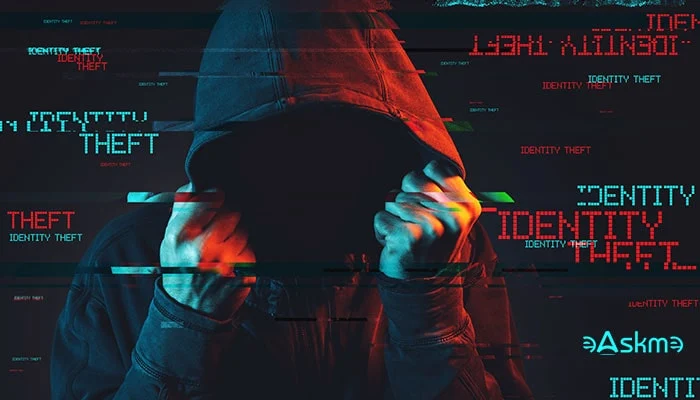Cybersecurity threats keep evolving in this modern age of technology and internet accessibility.
One of the most evolving threats today is identity theft.
This guide will show you what identity theft is and how you can protect yourself from it.
 |
| How to Protect Yourself from Identity Theft Effectively?: eAskme |
Identity theft is a threat to the online privacy of an individual.
It is a crime in which threat actors steal and use another person’s name and personal information for fraud or deception.
Stolen personal details are mostly used for economic gains.
Hackers can gain credit card details, social security numbers, passport information, and other important credentials.
The information can then be used to impersonate you online to commit fraud.
How to protect yourself against identity theft?
There are plenty of ways to protect yourself against identity theft.
However, the most efficient way to safeguard your information is by using a VPN.
A Virtual Private Network offers the best features to help protect against identity theft attacks.
With the fastest and safest VPN service, you can protect your online data with encryption.
Most VPNs use military-grade 256-bit AES encryption and pass your internet traffic via an encrypted tunnel. This way, no one can trace you online or steal your data.
When you are using a VPN, even if someone does compromise your online traffic, the stolen data will be of no use to them as it cannot be decrypted - thus protecting you against identity theft.
VPNs offer thousands of servers in multiple countries. You can connect to any server you want, and it reroutes your traffic through that server.
It not only makes you untraceable online but also hides your actual IP address as you are assigned a new IP address of the server location you are connected to.
Suppose you have connected to a Canadian server. In that case, you will be given a Canadian IP address, making it look like you are virtually located in Canada, despite your real geo-location.
VPNs also offer additional features like malware and tracker blockers for further protection.
So, even if you are connected to highly unsecured public Wi-Fi in cafes, restaurants, and subways, it will protect you against external threats and identity theft.
Due to encryption and other security features like a kill switch and IP leak protection, a VPN is the most effective way to protect yourself against identity theft and other online security threats.
Apart from Virtual Private Networks (VPNs), here are some other ways to boost your online security for securing your data against theft:
- Use strong passwords with unique combinations. Weak passwords are easy to guess, resulting in account takeovers.
- Use multi-factor authentication (MFA) that requires you to provide two or more two verification codes or factors to gain access to your accounts.
- Use a different password for all online accounts, including social media apps.
- Avoid accessing important apps like banking apps on public Wi-Fi without a VPN.
- Regularly check your online transaction history to see any suspicious activity.
- Sign out of your online accounts when not in use.
How can a hacker get hold of your personal information?
There are multiple ways hackers can steal your data online and use it for fraudulent activities.
The COVID-19 pandemic gave hackers a new opportunity to scam people and steal information.
Around $36 billion have been lost to scams amid the pandemic, in which 70% were due to identity theft.
Here are some common ways hackers can steal your personal information:
1. Phishing scams:
Phishing scams are quite common these days.
In this type of scam, perpetrators impersonate officials and contact targets via email, text, or calls.
Emails are the most widely used medium, where threat actors add fraudulent URLs in the email.
You are taken to a real-looking web page when you click on the link.
Hackers can steal your data as soon as you log in with your credentials.
In some cases, hackers ask users about their social security numbers, ID card number, and more.
2. Fake Websites:
There are a lot of fake websites online that keep a tab on your browsing history and even insert trackers.
When you visit a malicious webpage, hackers can steal your personal information.
Therefore, when visiting websites, make sure it is HTTPS and not HTTP.
3. Free public Wi-Fi:
Another common target base for identity thieves is free public Wi-Fi at coffee shops, airports, subways, and more.
No doubt convenient, public Wi-Fi is a hotspot for criminals.
Hackers can intercept your data and steal your log-in credentials when you connect to public Wi-Fi.
Most of the time, the Wi-Fi networks showing on your device are not legit connections and are fake networks created by criminals.
As soon as you connect to them, they can take over your device, stealing data.
Conclusion:
This blog has highlighted a few effective tips to help you secure your data against identity theft.
Among those, using a VPN provides overall protection and online security.
So, make sure to follow these tips and pay attention to any unusual activity around you.
Still have any question, do share via comments.
Share it with your friends and family.
Don't forget to join the eAskme newsletter to stay tuned with us.
Other handpicked guides for you;







